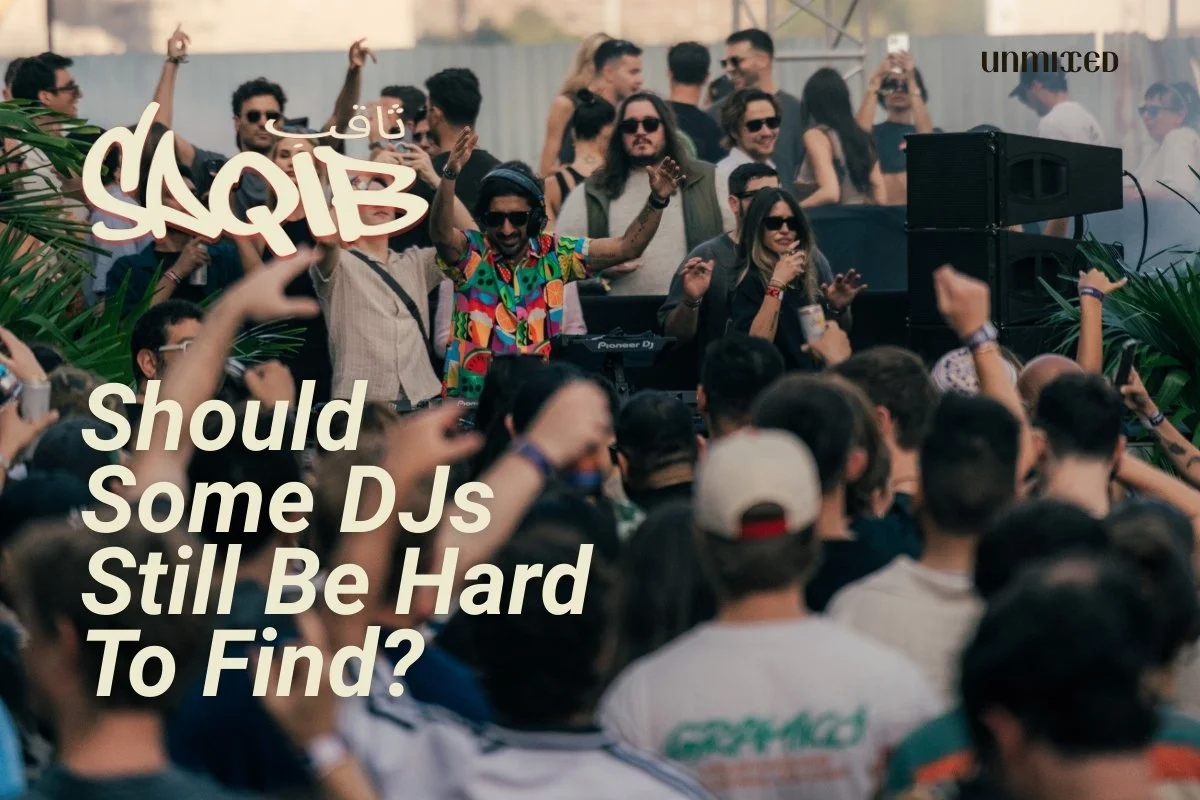Should Some DJs Still Be Hard To Find?
SAQIB on Exclusivity & Discovery — from Maccabi House Showcase, NYC / Teksupport 2025
At the Maccabi House showcase in New York City, we caught up with Saqib for a short backstage conversation before his set. In just a few minutes, he captured the energy of the night — from the tracks he was most excited to drop, to the ongoing question of how exclusivity shapes underground culture.
A creative force and a true DJ’s DJ, Saqib is known as a deep digger of rare gems, a producer with nearly a hundred releases across a decade, and a community builder in the Brooklyn underground. Born in Pakistan and rooted in rock and metal before moving into dance music, his sound defies genre — weaving house, techno, indie dance, hip hop, Bollywood, and more into a language of pure movement. With support from artists like Danny Tenaglia, Blond:ish, Adam Ten, and Adriatique, and releases on labels including Abracadabra, Get Physical, and his own imprint Beats On Time, Saqib has built a reputation for sets that feel both unexpected and magnetic.
🎥 Watch the clip here :
The Bigger Question..
This quick conversation opened up a wider question for us: should some DJs — and their music — still be hard to find?
Not long ago, sharing a set or a track with a friend felt like passing on a secret. You’d lean in and say, “Look, it only has 500 streams. This is legit.” It wasn’t just about flexing — it was about discovery, about showing someone a world they wouldn’t have found on their own. Techno geeks went on full-blown scavenger hunts, piecing together IDs from shaky uploads or obscure forums.
That thrill has become harder to find. Today, music floods in endlessly: promos clog inboxes, algorithm feeds shove tracks down our throats, and DJs often give up digging entirely. Instead of treasure hunts, we’re handed playlists.
Gatekeeping or Stewardship?
Exclusivity has always been woven into club culture. SAQIB reminded us of that:
“Since the beginning of DJ’ing and club culture there has been a certain level of exclusivity in sharing things — white labels, limited-press vinyl records, tracks that you could only get from certain places or people. That thrill will always exist, as long as there’s a gap between creation and release.”
Today, though, that exclusivity takes new forms: private Telegram groups, label promo pools, email lists, or unreleased edits passed between friends. For Saqib, that line is both practical and cultural:
“As a person who runs a record label, before the release of a record, we do want a certain exclusivity in where it’s heard and who plays it. There’s also the risk of people plagiarizing tracks prior to release and putting them out as their own.”
So is this gatekeeping, or is it stewardship? As Saqib put it, exclusivity is part of what makes underground culture feel alive, even sexy:
“Exclusivity and secrecy are part of the underground club and DJ culture. That’s what makes it exciting. You go to listen to Seth Troxler because you know he has records that nobody else has. You don’t go to hear what you already know — you go for the unknown.”
Keeping the Thrill Alive
In a digital landscape where anyone can upload a track instantly, how do DJs keep discovery meaningful? For Saqib, it comes down to curation and persistence:
“I scrub through hundreds of tracks every day in search of music for the dancefloor. And I sometimes find one that blows my mind, maybe, out of hundreds. That moment is everything though, for me… that is the thrill of being a collector!”
A promo from a friend is no different than a track from Beatport — if it doesn’t hit, it doesn’t make the cut.
“Just because it’s from a friend or a great label doesn’t mean I’ll play it. I only play tracks that I absolutely love, regardless of origin. If I heard a wild track tomorrow in McDonald’s, I’d still play it in my sets.”
The paradox is clear: scarcity and mystery fuel the magic — but holding too much back risks suffocating the culture. As Saqib says, DJs have to walk that line carefully:
“If I can release it, I will. The only exception is edits or tracks with copyright issues. But everything unreleased from me or the label, I hope to put out eventually.”
The bottom line:
At the end of the day, discovery isn’t just about IDs — it’s about shared experience. Saqib laughed when asked if dancers still cared about exclusives in 2025:
“In every friend group in the world there’s always one person who goes crazy over every track ID and has to hunt it down and bring it back to the group. That’s an unwritten rule. It’s never going away.”
And maybe that’s the answer: exclusivity isn’t a wall, it’s a spark. Something to chase, argue about, and pass on.

